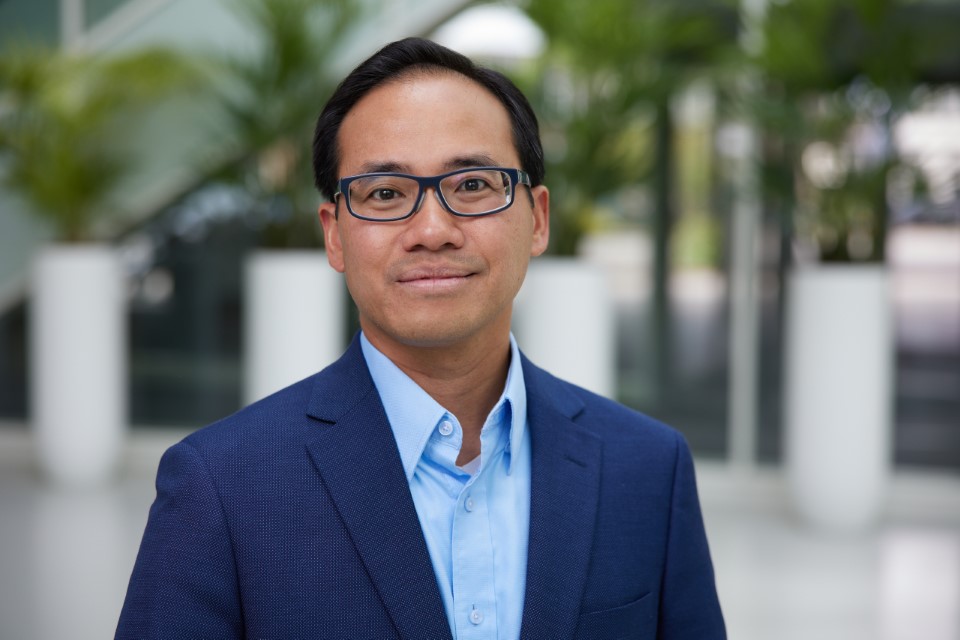Head of research group Dr Rizal Sebastian focuses on sustainable, liveable cities
29 March 2023
It should be a reality in less than 10 years. Then we will live in climate-neutral cities that run on renewable energy, consist of sustainable buildings and can withstand extreme weather.

It should be a reality in less than 10 years. Then we will live in climate-neutral cities that run on renewable energy, consist of sustainable buildings and can withstand extreme weather. Such is the ambition of the EU Mission: Climate Neutral and Smart Cities. Hard work is being done to achieve that goal and the Future Urban Systems research group is collaborating on that. Head of research group Rizal Sebastian brings together students, (lecturer) researchers, the business community, municipalities and citizens to work on the city of the future.
In a good smart city, the human aspect always comes first. After all, cities are there for the people, not the other way around.
Rizal has been head of the Future Urban Systems research group since May 2022 and has been whistling to work every day since then. “In previous research positions, I saw that new solutions only found their way into practice after five or ten years. At The Hague University of Applied Sciences, I immediately see how research has an impact, both on practice as well as on education. I think that's great!” With a background in engineering, Rizal has always had an interest in the built environment. “What struck me is that construction is lagging behind other sectors when it comes to sustainability and digitisation. In this position, I want to help reduce that backlog with practice-oriented research. But digitisation is not an end in itself,” he emphasises.
I see digitisation as an important enabler to develop and maintain smart cities. There is a lot of data available that helps us make smarter and faster choices, and technology helps us monitor and adjust changes in the built environment.
Digital twins for smart design decisions
Students recently showed an example of what this looks like in practice during the Techathon. Four THUAS students formed a team with two senior secondary vocational education and training (MBO) students and two young professionals. Using a digital twin, they developed different scenarios for an area with vacant office buildings, as a basis for smart design decisions. The various scenarios showed how the area could develop into a sustainable residential area. Rizal: “Their subsequent idea was that the digital twin would grow with the neighbourhood transformation, based on data that you collect in the area. For example, you can predict when maintenance is required. Or what possibilities there are for using shared vehicles. They not only won the Techathon with their idea but were also invited to present it to the Municipality of Amersfoort and the Ministry of the Interior.”
Technology and humans
The research group collaborates with three other research groups in the Mission Zero Centre of Expertise The four disciplines complement each other flawlessly. Rizal: “With Sander Mertens, head of the Energy in Transition research group, for example, I am writing a feasibility study for a campus development in Westland. It is a prestigious project because the Westland has a worldwide exemplary function in horticulture. Sander focuses on the possibilities of the technology around circular energy, water and heat. I focus on scaling up and implementing this with the help of digitisation. The input of residents is essential here: after all, they must use the area. In the design of some new cities, you see great technological developments, but the involvement of the residents hardly plays a role. That goes against my feeling: cities are there for the people! Connection between the built environment and residents is therefore one of the most important focal points of the research group.”
Embedding knowledge in education
Another focal point is making the building stock more sustainable and connecting separate sustainable solutions for more impact. In his position as head of the research group, Rizal also works as a senior digitisation advisor in the Sustainable Building team of the RVO. “Here, we are involved in a number of tasks, for example to renovate 1.5 million homes nationwide with the help of data-driven design tools,” he says.
It’s great exploring new possibilities within the policy of the national government together with students, lecturers, municipalities and partners in the professional field. I hope that we can embed the knowledge we gain in education in such a way that we, as the construction sector, can make up for our innovation backlog once and for all.
Inaugural lecture: 13 April
Rizal will present his plans for the research group in detail during his inaugural lecture on 13 April. The inaugural lecture is part of the symposium 'With an inclusive approach, we build sustainable and smart cities!' Here, various speakers will share their vision and visitors will come together during an interactive knowledge market.
Click here for the full programme.
We look forward to seeing you on 13 April. Will you be there? You can register via this registration link